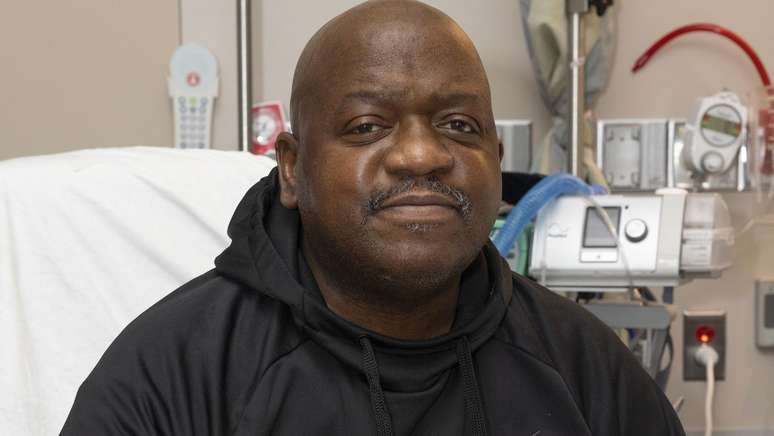Richard Slayman died in the US after surviving for weeks with a genetically modified pig kidney; This was the first transplant of its kind in the world
In the United States, the first human patient to receive a genetically modified pig kidney he passed away on Saturday (11th). With advanced disease and comorbidities, patient Richard Slayman, who was 62 years old, survived virtually two months – exactly 56 days – after the unprecedented surgery.
- Woman receives mechanical heart and pig kidney ‘at the same time’
- The kidneys are frozen for 100 days, thawed and transplanted
The operation which allowed the transplantation of a pig kidney into a human being was coordinated by the Brazilian doctor and surgeon Leonardo Riella, of the Massachusetts General Hospital (MGH).
To make cross-species transplantation possible, the pig kidney was provided by the North American company eGenesis. Before surgery, the animal’s organ underwent 69 genomic modifications, carried out with CRISPR-Cas9 technology (Nobel Prize winner) to remove harmful genes and add some human genes, which improves the compatibility level.
It is worth noting that, at the moment, patient Lisa Pisano has undergone the transplant and is also living with a pig kidney. However, Pisano’s surgery was more complex, as she also received a mechanical heart. She faces kidney and heart problems.
Has the pig kidney stopped working?
In a statement, the medical team at the North American hospital lamented the death of the first person in the world to receive a pig kidney. The doctors responsible also stated that there was no indication that the death occurred as a result of the surgery or rejection of the porcine organ.
“We have no indication on this matter [o óbito do paciente] it may have been the result of his recent transplant,” the statement said.
The state of health of Richard Slayman
The worsening of the patient’s health could have various causes, such as the advanced kidney disease that affected Richard. Additionally, the individual is living with type 2 diabetes and hypertension (high blood pressure) many years ago.

In fact, Richard even received a “conventional” kidney transplant in 2018, from a human donor. However, the organization began showing signs of intending to stop operating in May last year.
Given his history, he was not eligible to receive a new human transplant. Therefore, we opted for an experimental, immersive surgery transplant between different species (xenotransplants).
Family of the first patient to receive a transplant
“Our family is deeply saddened by the sudden passing of our beloved Rick, but we are comforted to know that he inspired so many,” the patient’s family said in a statement. “His legacy will inspire patients, researchers and healthcare professionals everywhere,” they add. After all, based on the knowledge gained during surgery, doctors will be able to make the procedure safer and more efficient in the future.
Understanding xenotransplantations
Until the case of the American Richard, pig kidney transplants to humans were only performed on brain-dead patients. Therefore, the evolution of this case was entirely expected, especially since the organ underwent 69 genetic corrections, aimed at preventing the risk of rejection. Test with pig hearts implanted in humans they are also developed.
Source: MGH
Trends on Canaltech:
- Apple and Google launch protection against unwanted trackers
- It’s raining in RS | Social networks help find lost animals
- Samsung Jet 65 Pet Review | Powerful and portable upright vacuum cleaner
- Unrivaled by Google, OpenAI announces GPT-4o and ChatGPT for PC
- The 50 funniest Google Assistant jokes
- X-Men ’97 was barred from using this famous comic book mutant
Source: Terra
Ben Stock is a lifestyle journalist and author at Gossipify. He writes about topics such as health, wellness, travel, food and home decor. He provides practical advice and inspiration to improve well-being, keeps readers up to date with latest lifestyle news and trends, known for his engaging writing style, in-depth analysis and unique perspectives.





![Tomorrow belongs to us: What are you waiting for on Tuesday, April 29, Tuesday, 1932 in the episode of 1932 [SPOILERS] Tomorrow belongs to us: What are you waiting for on Tuesday, April 29, Tuesday, 1932 in the episode of 1932 [SPOILERS]](https://fr.web.img6.acsta.net/img/83/47/83478eb593f2e8d42fddc75df5af13e4.jpg)


